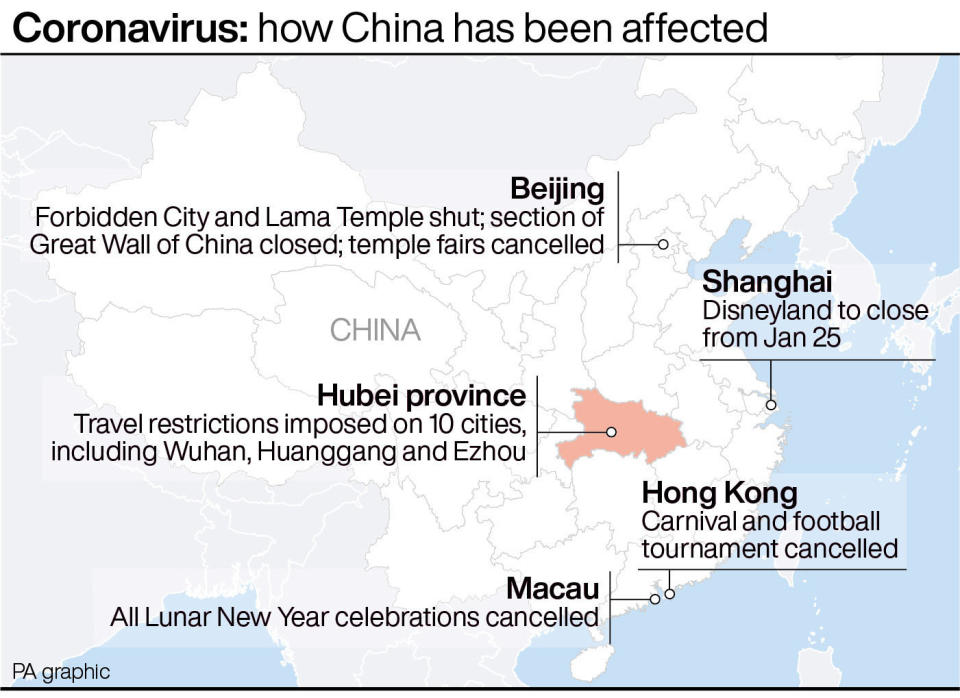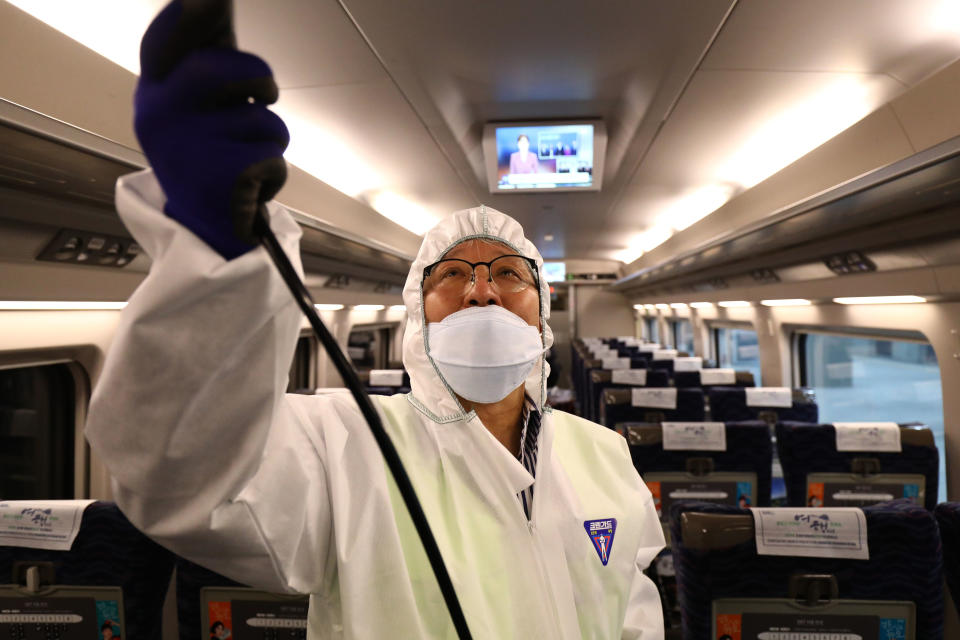Government's Cobra team meets to discuss coronavirus threat after expert claims it's 'highly likely' virus will reach Britain

The Government’s Cobra emergency committee has met to discuss the threat of coronavirus to the UK as tests on fourteen people in the UK have come back negative.
Public Health England (PHE) said on Friday that results from all 14 people suspected of contracting the virus had come back clear.
However, there are checks ongoing on other people, according to the Chief Medical Officer Professor Chris Whitty.
Professor Paul Cosford, emeritus medical director at PHE, has said it is still “early days” in the course of the virus, but stressed that most of those affected abroad are making a good recovery.
Health Secretary Matt Hancock said the risk to the UK public “remains low” as he left the Cabinet Office on Friday, saying: “We have just held a Cobra meeting on the coronavirus concerns.
“As I made clear to the House yesterday, the clinical advice is that the risk to the public remains low and the chief medical officer will be making a full statement later today.”

It comes after the Scottish Government confirmed that five people were being examined after showing symptoms of the illness, while one patient was understood to have been tested at Belfast’s Royal Victoria Hospital.
The Government’s Cobra contingencies committee was due to meet at midday on Friday to discuss the coronavirus outbreak, Downing Street said. A Number 10 spokesman said there were still no confirmed cases in the UK.
The death toll in China has risen to at least 26, with hundreds more cases confirmed, according to authorities.
Other cases have been reported in Japan, South Korea, Singapore, Thailand, the US and Vietnam.
READ MORE
How is the international media reacting to coronavirus?
'A catastrophe sooner rather than later': Doomsday Clock moves 20 seconds closer to midnight
While none of the UK cases has so been confirmed as coronavirus, two of the patients tested in Scotland had been diagnosed with influenza after travelling to Wuhan, China, where the outbreak is thought to have originated.
In a statement to the Commons on Thursday, Health Secretary Matt Hancock said while “there is an increased likelihood that cases may arise in this country, we are well prepared and well equipped to deal with them”.
The UK is monitoring direct flights arriving into the UK from China as a precaution.
Passengers are receiving leaflets and advice on what to do if they develop symptoms, and a PHE health team is on standby at Heathrow.
Checking temperatures is at airports is not necessary, experts have suggested, because it can take five to 10 days for symptoms to develop.

The World Health Organisation (WHO) said while the spread of the virus was an emergency in China it was too early to declare it a global health emergency.
Dr Tedros Adhanom Ghebreyesus, director-general of the WHO, said: “We know that most of those who have died had underlying health conditions such as hypertension, diabetes or cardiovascular disease, that weakened their immune systems.
“We know that there is human-to-human transmission in China, but for now it appears limited to family groups and health workers caring for infected patients.
“At this time, there is no evidence of human-to-human transmission outside China, but that doesn’t mean it won’t happen.
“There is still a lot we don’t know. We don’t know the source of this virus, we don’t understand how easily it spreads and we don’t fully understand its clinical features or severity.”

Peter Piot, professor of global health and director of the London School of Hygiene & Tropical Medicine, said there were still “many missing pieces in the jigsaw puzzle”, adding: “Over the coming days and weeks we will know much more, but there cannot be any complacency as to the need for global action.
“The good news is that the data to date suggest that this virus may have a lower mortality than Sars, we have a diagnostic test and there is greater transparency than decades gone by.
“And that is essential because you cannot deal with a potential pandemic in one country alone.”
Prof Haas, head of infection medicine at the University of Edinburgh, warned that there would be “probably be many more cases in many other cities in the UK”.
Wuhan – the city where the virus is believed to have originated – is under quarantine, with authorities suspending planes and trains in and out of the city.
Beijing, Hong Kong and Macau have also cancelled some events to stop large crowds gathering together, as the country prepares to celebrate the Lunar New Year.



